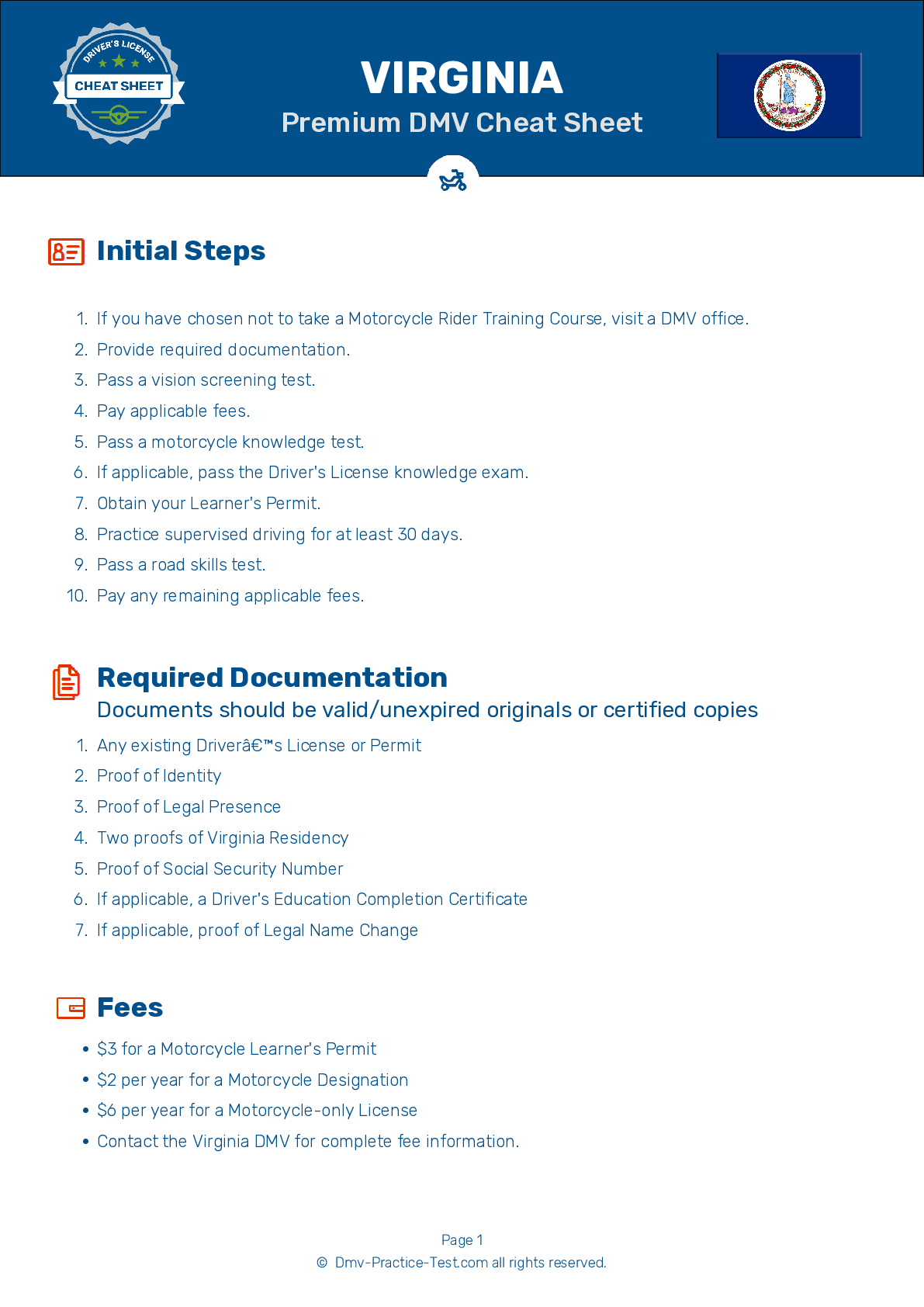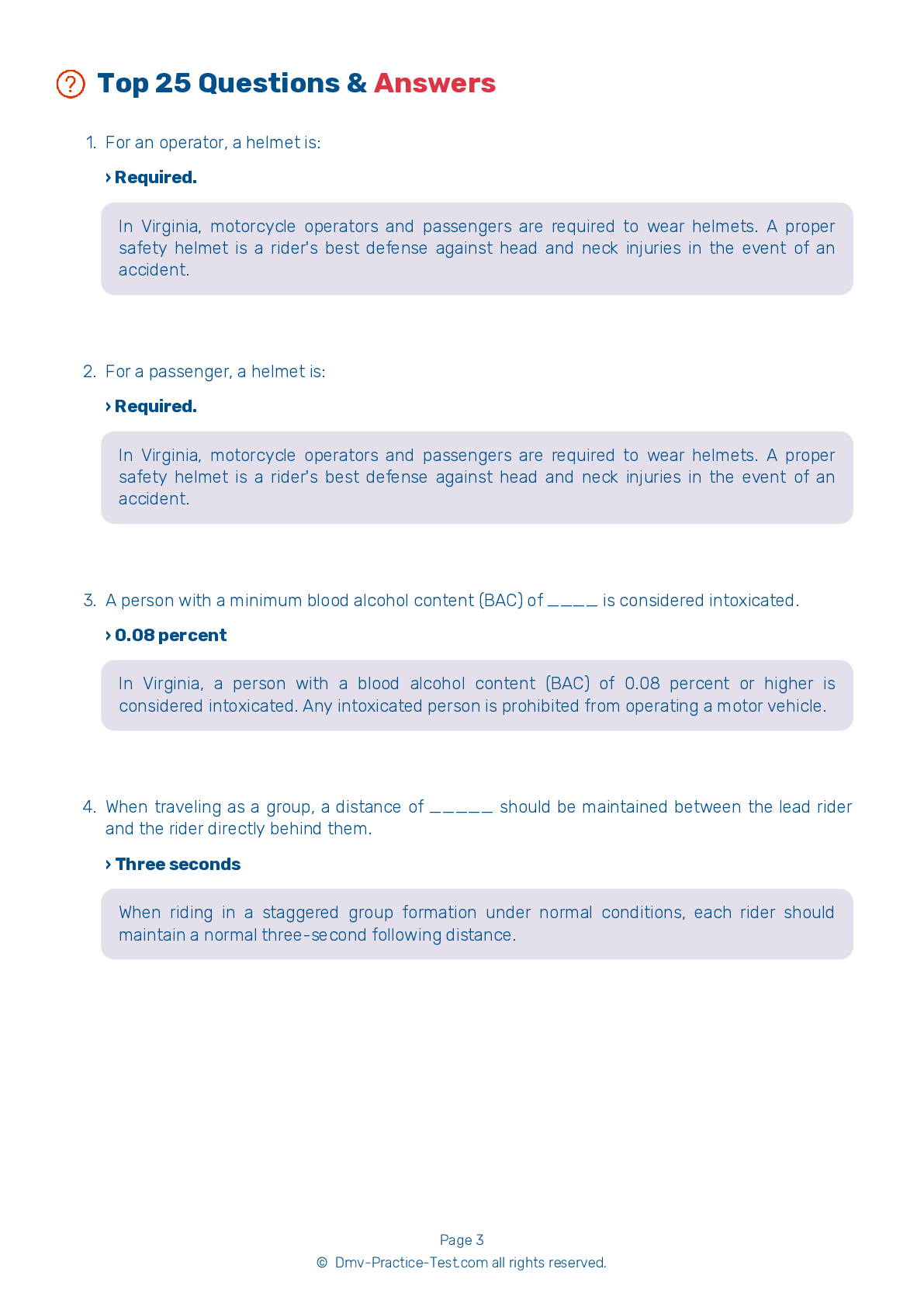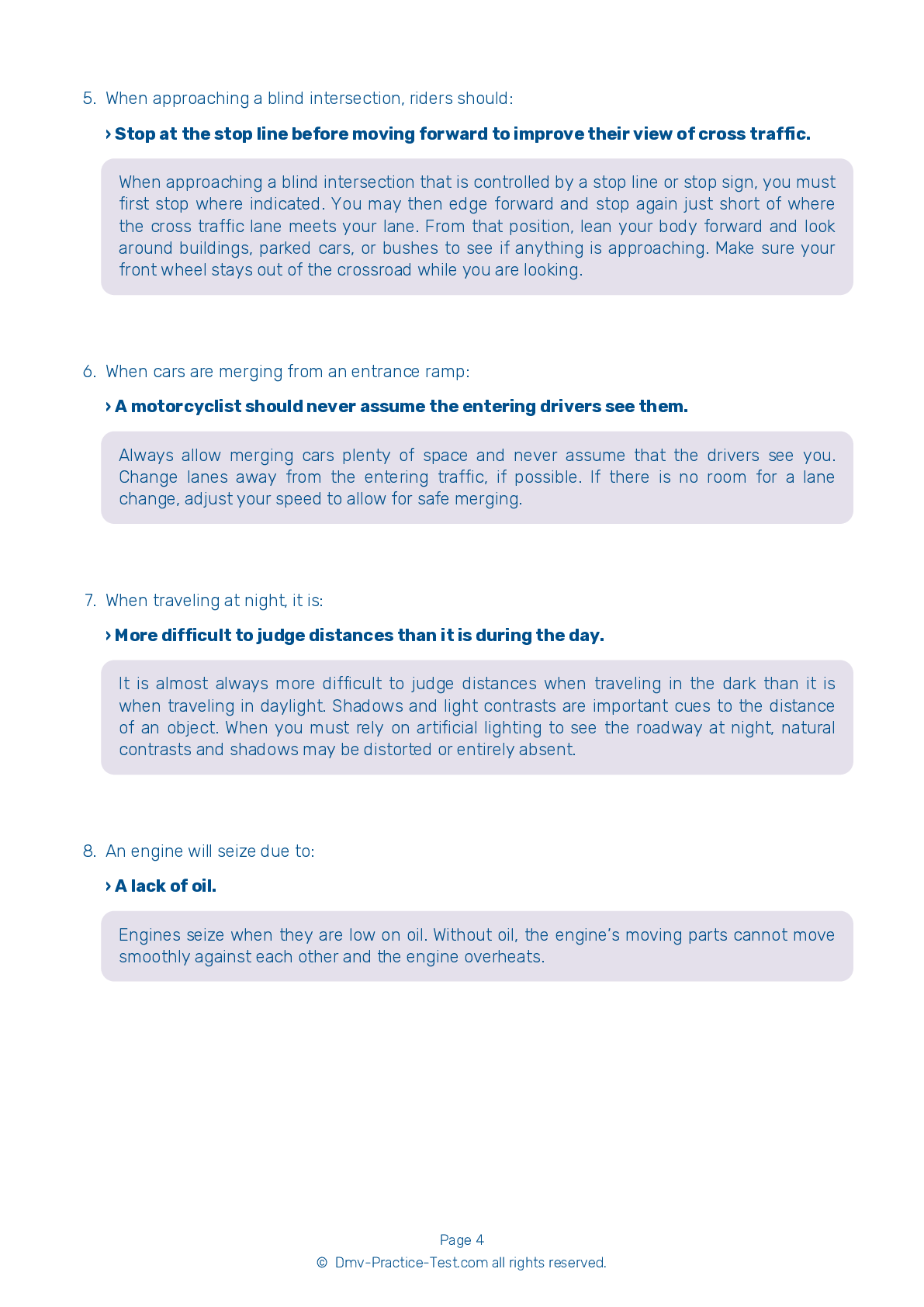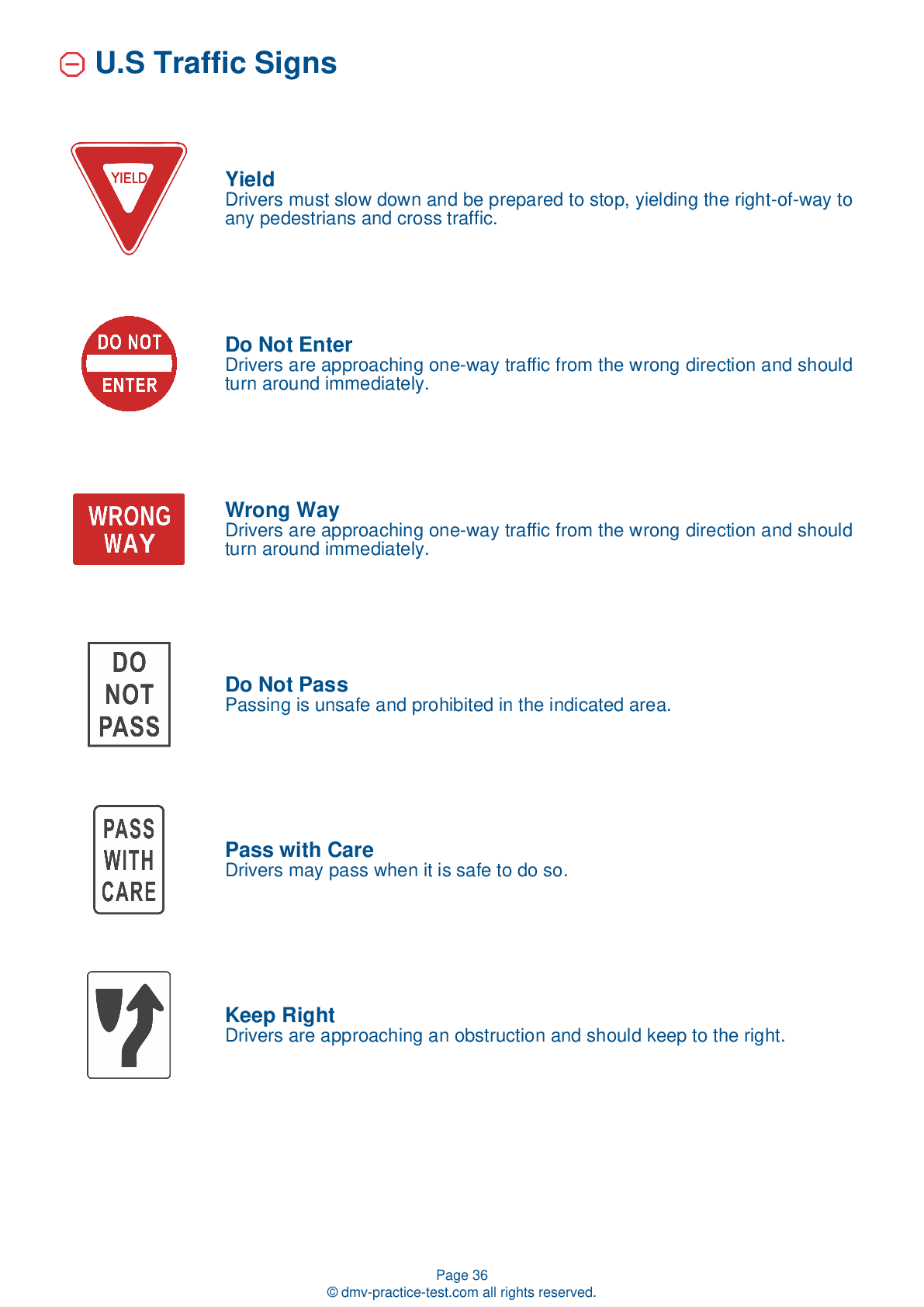Motorcycle Test | License VA 2026 | FREE Online Practice! #4
Take this FREE motorcycle test (license in VA 2026) to check your knowledge of the road rules. To improve your results, download a motorcycle handbook online, study theory, and practice for free on our website. Still worried about how to get a motorcycle license in Virginia in 2026? Check our website for more sample tests, train as much as possible, and boost your grades!
1 . When riding behind a car, traveling in the left third of the lane allows the driver to see you in their side mirror. What is a downside to this?
Most drivers do not look at their side mirrors as often as they look at their rearview mirror. Therefore, when following a car, it is generally most advantageous to ride in the center portion of the lane where you are most likely to be visible in the driver's rearview mirror.
2 . When riding in a group on a straight road, motorcyclists should:
Riding in a staggered formation is the best way to keep group ranks close while maintaining adequate space cushions for each individual rider. Motorcyclists should move into a single-file formation when turning, riding in a curve, or entering or leaving a roadway.
3 . Use your high beam headlight:
Use your high beam whenever you are not following or meeting a car, even during the day.
4 . When stopping your motorcycle while carrying a passenger, you should:
A passenger places extra weight on a motorcycle. Because of the added weight, the motorcycle will respond to the operator's movements more slowly than it would otherwise, taking more time to speed up, slow down, and turn. To accommodate the change in handling when carrying a passenger, you should reduce your speed, begin slowing down earlier when you stop, and look for larger gaps when crossing, entering, or merging into traffic.
5 . When being passed by another vehicle, motorcyclists should be alert to:
When being passed, motorcyclists should be careful not to be hit by any part of the passing vehicle, including its mirrors. In addition to the vehicle itself, motorcyclists should also be aware of wind gusts coming from the passing vehicle and potential objects being thrown by a passenger in the vehicle who may not be paying attention to the road.
See the exact questions that will be on the 2026 Virginia DMV exam.
99.2% of people who use the cheat sheet pass the FIRST TIME
Jeneen was tired of paying $5/gallon. She got herself a scooter that required the motorcycle license. She studyed the motorcycle test cheat sheet and passed her test the next day!
Christopher tells us how he knew nothing prior to obtaining the motorcycle study guide, and he only got one question wrong because he clicked on the wrong answer by mistake.



